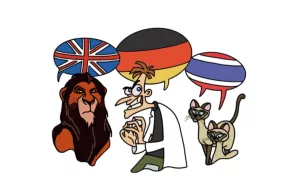The Trial, as I found out quite grudgingly in my Legal Thought course, is no doubt a difficult read. Although it makes valuable insights about the need for our modern legal protections, these insights are hard fought for, even by the most patient of readers. This is because of the surreal and nightmarish state that Kafka implores to make his point. Throughout The Trial, one has the nervous and anguished feeling of trying to run in a dream, which creates a difficult and nothing short of agonizing read. However, this tone and theme is exactly what creates such a significant and impactful legal critique.
Describing this brilliantly, Benjamin Winterhalter wrote “What about the plunging sense of unease -like a feeling of falling- that no one can quite seem to shake when they first encounter Kafka’s stories?” For more information on this, please check out my presentation on Chapter 6 of The Trial, which discusses this point in detail.
Kafka’s Catch
Despite the importance of The Trial for any budding law student, or anyone interested in actually being able to use the word “Kafkaesque,” it is a book that most readers at the very least complain about, and many, understandably, do not finish.
Knowing this, you can imagine my annoyed surprise when I began to see huge similarities to The Trial as I finally got around to reading Catch-22, a book that had been on my list for a long time. The novel is very similar to The Trial in both its purpose, and its approach to it. Catch-22 does focus more on the ineffectiveness of bureaucracy, rather than the potential tyranny of a court system, however, both novels critique these points by showing the comically exaggerated incompetencies of each.
Despite this, they are distinctly different in one way: I actually enjoyed reading Joseph Heller’s Catch-22. At no point was I tempted to put it down and never pick it back up, a temptation I had overwhelmingly at every point throughout The Trial.
Thus, in my opinion (what that’s worth is up to you), any reader interested in Kafka should begin with Heller. Specifically, if you are interested in The Trial I would recommend you start with Catch-22. I would define it as dipping your toes into the allegorical water of Kafka, however, it is much more like telling Goldilocks in advance which soup is just right. Between too hot, readable but leaving no impactful message, and too cold, barely readable but making the point it needs to, Catch-22 is certainly a soup that is just right. Then, if for some reason Goldiclocks wants a colder–insufferable–soup, she can read The Trial afterwards.
The grin that Kafka missed
As schmoop.com, a literature study site for students, wrote about The Trial “The weighty themes of the story are tempered by absurd moments typical of Kafka’s fiction.” I simply disagree. Maybe I’ve been exposed to too much TikTok and this has affected my tolerance as a reader, but nothing was tempered within The Trial. Contrastingly, Catch-22 is a book that actually made me smile; the jokes were both existent and funny. While the Kafkaesque-ness of The Trial made me uneasy, in Catch-22 it often made me laugh. After reading Catch-22 I was ready to grab another Heller book, after The Trial I very much needed some healthy distance from trials and giant bugs alike.
It is important to note, of course, that Catch-22 is a book of a different era. I certainly do not stand by everything it thinks, says, or includes. Revolving topics of prostitution, for instance, and everything about Aarfy, a Catch-22 character whom I grew to very actively hate, I do not recommend the book holistically. However, should one be interested in reading Kafka and The Trial, I would strongly recommend Catch-22 in its place. Afterwards, once the mind is sufficiently vaccinated to Kafka-like works, you can pick up a copy of The Trial if you’d like.




